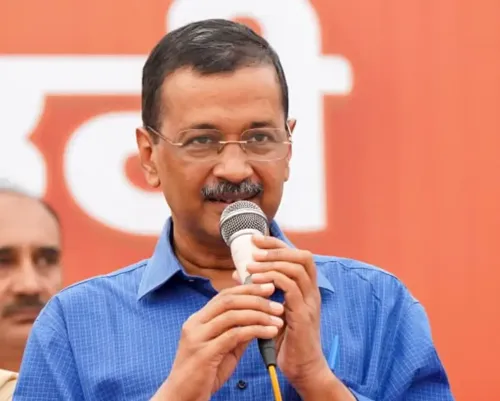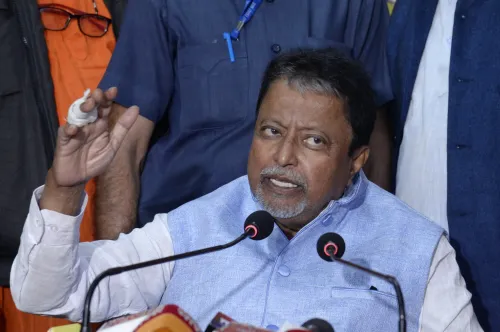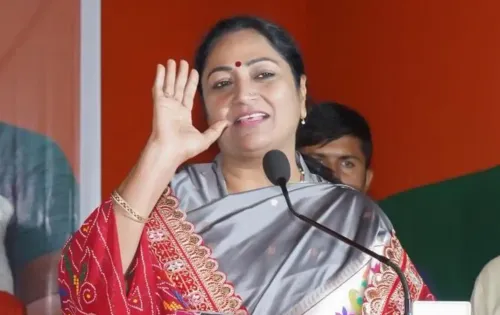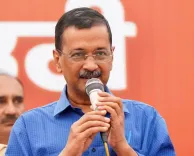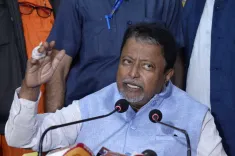Did HM Amit Shah Launch a Nationwide Drug Disposal Campaign?
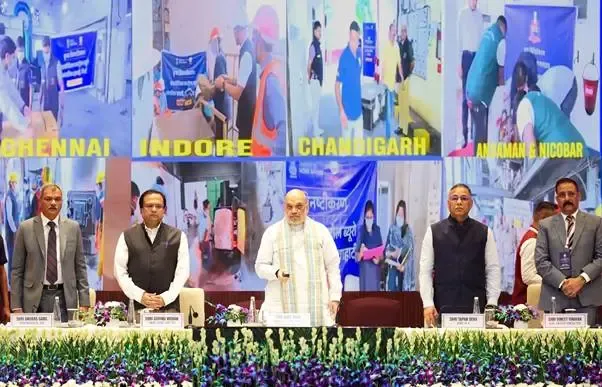
Synopsis
Key Takeaways
- Amit Shah launched a nationwide drug disposal campaign.
- Destruction of 1.37 lakh kg of narcotics valued at Rs 4,800 crore.
- Three-pronged strategy includes supply chain disruption, demand reduction, and harm reduction.
- Active participation from 372 districts and 10 crore individuals.
- Emphasis on advanced technology in anti-narcotics operations.
New Delhi, Sep 16 (NationPress) The Union Home Minister, Amit Shah, officially launched the second National Conference of the Heads of Anti-Narcotics Task Force (ANTF) from various states and Union Territories on Tuesday. This event unveiled a comprehensive strategy aimed at fulfilling Prime Minister Narendra Modi's aspiration for a drug-free India.
During the event, Shah initiated the Narcotics Control Bureau’s (NCB) Online Drug Disposal Campaign and oversaw the destruction of 1.37 lakh kg of narcotics, valued at Rs 4,800 crore, across 11 locations nationwide.
He also released the NCB’s Annual Report 2024. While addressing the ANTF leaders, Shah emphasized that the Modi administration is adopting a three-pronged strategy: an aggressive approach to disrupt supply chains, a tactical approach to curtail demand, and a compassionate approach for harm reduction.
Shah insisted that efforts should extend beyond merely targeting minor dealers to dismantling the cartels operating at entry points, interstate distribution channels, and local sales networks. He urged state police and ANTFs to utilize advanced techniques such as darknet analysis, cryptocurrency tracking, and machine learning models, motivating all stakeholders to dedicate 12 days a year specifically to anti-narcotics operations.
He brought attention to the Drug-Free India campaign, which is actively engaging 372 districts with participation from 10 crore individuals and three lakh institutions. Nonetheless, he stressed that this initiative needs to be expanded nationwide. Shah cautioned about the looming threat posed by synthetic drugs and clandestine laboratories, urging states to promptly identify and eliminate them.
According to a Home Ministry statement, the Mission Drugs Free Campus Campaign is also being conducted in universities and institutions nationwide. Additionally, there’s an initiative to enhance training concerning the dark web, cryptocurrency, and the use of the Manas helpline.
He mentioned that the NIA has registered 18 cases under the PIT-NDPS Act (Prevention of Illicit Traffic in Narcotic Drugs and Psychotropic Substances Act) and has commenced a thorough investigation. Similarly, the Narcotics Control Bureau has initiated a comprehensive investigation into more than 35 cases provided by the states. He noted that thousands of individuals have undergone training in various programs.
Stressing the importance of international collaboration, Shah stated that drug traffickers operating from abroad would face penalties through extradition and deportation agreements, facilitated by coordination among the NCB, the CBI, and regional police forces.
He encouraged ANTF leaders to ensure regular NCORD meetings in all districts, pointing out that 272 districts had not convened a single meeting. Highlighting progress, Shah revealed that drug seizures surged from 26 lakh kg (worth Rs 40,000 crore) between 2004–13 to 1 crore kg (valued at Rs 1.65 lakh crore) from 2014–25, while arrests increased from 1.73 lakh to 7.61 lakh.

